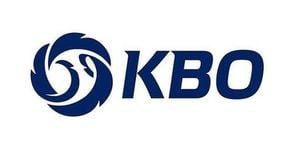Dell Technologies Inc.'s stock took quite the hit recently, tumbling over 10% after the company's latest earnings report fell short of expectations. The tech giant, known primarily for its personal computers and servers, reported third-quarter earnings of $24.4 billion, marking a 10% increase from the previous year. Despite surpassing analysts’ earnings forecasts with $2.15 per share—beatings the anticipated $2.06—revenue came up slightly short of the target of $24.67 billion. The company also noted a net income rise of 12%, reaching $1.12 billion, but this wasn't enough to quell investor fears.
One significant factor for this dip stems from Dell's prediction of weaker server sales, as enterprise customers are choosing to delay purchases in favor of new hardware featuring Nvidia's latest Blackwell graphics processing unit chips. Dell's Vice Chairman and COO, Jeff Clarke, highlighted the volatile nature of AI server sales, pointing out the inconsistent growth tied to the rapid innovations occurring within the industry. "This business will not be linear, especially as customers navigate the underlying silicon roadmap," he stated during the earnings call.
Despite the stock decline, it's important to note the impressive year-on-year growth for AI server sales, which increased by 34% within Dell's Infrastructure Solutions Group, reaching $11.45 billion. Within this segment, revenues from servers and networking jumped 58%, contributing $7.4 billion. Clarke elaborated on the anticipated needs of enterprise customers, saying, "We're only in the very early innings of enterprises learning how to deploy AI"—indicating substantial long-term potential for the market.
The demand for Nvidia's GPUs continues to surge as companies like Meta Platforms Inc. scramble to secure as many units as possible. Dell effectively capitalizes on this by integrating Nvidia's technology within its servers. Still, the current anticipation of Nvidia's next-generation Blackwell chips has led customers to hold off on orders, which may result in short-term struggles for Dell.
Indeed, prior to the earnings report, Dell's stock had soared over 86% as the company’s significance within the AI hardware space grew increasingly apparent. Nvidia’s CEO, Jensen Huang, has publicly praised Dell, urging potential purchasers of AI systems to consult with Dell founder and CEO Michael Dell. With AI technology becoming fundamental to various sectors, Dell has positioned itself as one of the key players, developing dedicated initiatives like the AI Factory to aid organizations in scaling their AI efforts.
On the other hand, the broader picture for Dell’s traditional consumer PC sales isn’t as rosy. The Client Solutions Group, which oversees PC and laptop sales, reported revenue down by 1% to $12.1 billion. Notably, consumer PC sales plummeted by 18%, settling around $2 billion, even as commercial PC sales saw modest growth with a 3% increase.
Dell's CFO Yvonne McGill indicated during the call with analysts, "The PC refresh cycles are pushing to next year," acknowledging the persistent challenges across the sector. Analysts point to the uneven recovery within the market as companies navigate post-pandemic industry shifts, but the expected continued growth within commercial sales offers some glimmer of hope.
Despite these downcast financial indicators, Dell's position within the growing AI space remains promising. With current projections indicating revenue between $24 billion and $25 billion for the upcoming quarter, slightly lower than expected targets, the continued emphasis on AI server sales could stabilize profits moving forward. Clarke noted, "We saw in the third quarter a pretty rapid shift of the orders toward our Blackwell designs," highlighting the $4.5 billion pipeline of future AI server orders waiting for fulfillment.
Overall, Dell Technologies reflects both the opportunities and challenges inherent in today’s tech market. While it has emerged as a major player within AI-driven hardware sales, short-term setbacks and the sluggishness of traditional PC sales highlight the need for the company to adapt to these shifting market demands. Investors and industry watchers will closely monitor the company’s next moves as it navigates through this blend of uncertainty and promise.



